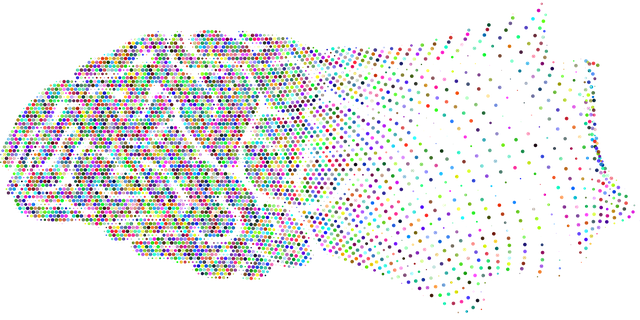Mental illness media representations heavily influence public perception, often perpetuating stereotypes about conditions like conduct disorder. Westminster Conduct Disorder Therapy leads efforts to challenge these narratives by advocating for more nuanced, empathetic portrayals, focusing on recovery and resilience. Through diverse initiatives—including community outreach, support services, education, and holistic treatment strategies—they aim to foster a compassionate society that extends beyond screen time, ultimately reducing stigma and promoting early intervention and effective treatments.
“Mental illness representation in media is a powerful tool that can either perpetuate or challenge societal stigmas. This article delves into the current state of mental health portrayal, examining how stereotypes and misinformation impact public perception. We explore the case study of Westminster Conduct Disorder Therapy, demonstrating effective representation and its potential to transform attitudes. Furthermore, we present strategies to combat stigmatization, offering a path towards positive change in media’s role within mental health discourse.”
- Understanding Mental Illness Representation in Media: The Current State
- The Impact of Stereotypes and Misinformation on Public Perception
- Westminster Conduct Disorder Therapy: A Case Study of Effective Representation
- Strategies to Challenge Stigmatization and Promote Positive Change
Understanding Mental Illness Representation in Media: The Current State

Mental illness representation in media has long been a subject of debate and analysis. The current state reveals a complex narrative where mental health issues are often depicted stereotypically or sensationalized, impacting public perception and potentially hindering understanding and empathy. Media platforms play a significant role in shaping societal attitudes, and inaccurate or inadequate portrayals can further stigmatize individuals struggling with conditions like conduct disorder. Westminster Conduct Disorder Therapy has been at the forefront of challenging these narratives by promoting more nuanced and realistic representations that emphasize recovery and resilience.
Understanding mental illness involves recognizing its diverse manifestations and the unique experiences of those affected. Inner strength development is a crucial aspect often overlooked in media portrayals, where stories tend to focus on the severity of symptoms rather than the potential for growth and healing. Trauma support services and burnout prevention strategies for healthcare providers are also essential considerations. By advocating for more responsible media representation, these initiatives work towards creating a more compassionate and informed society that extends beyond the screen.
The Impact of Stereotypes and Misinformation on Public Perception

The media has long played a significant role in shaping public perceptions about mental health. However, prevalent stereotypes and misinformation often contribute to stigma and misinformed attitudes, creating barriers to understanding and acceptance. When depicting individuals with mental illnesses, especially conditions like Conduct Disorder, media outlets must strive for accurate and nuanced representations. Stereotyping these individuals as violent or unpredictable not only perpetuates fear but also oversimplifies complex conditions that require empathy and specialized treatments, such as those offered at Westminster Conduct Disorder Therapy centers.
Community outreach programs and initiatives focused on education can help combat these stereotypes. Implementing self-awareness exercises and campaigns that promote mental health literacy are essential steps towards fostering a more compassionate society. By challenging misinformation, we can encourage accurate portrayals in media, which, in turn, may inspire people to seek support for themselves or their loved ones without fear of judgment. This shift in perception is crucial for encouraging early intervention and effective treatment options, including depression prevention strategies.
Westminster Conduct Disorder Therapy: A Case Study of Effective Representation

Westminster Conduct Disorder Therapy stands as a remarkable example of effective mental illness representation in media. This therapeutic approach, specifically tailored for individuals dealing with conduct disorders, offers a nuanced and compassionate perspective that challenges traditional stereotypes often associated with such conditions. By showcasing realistic characters grappling with their mental health while also highlighting the potential for growth and recovery, Westminster Conduct Disorder Therapy serves as a powerful tool in the fight against stigma.
The program’s success lies in its holistic approach, which includes personalized therapy sessions, support groups, and even mental wellness journaling exercises to foster emotional well-being promotion techniques. This multifaceted strategy not only addresses the symptoms but also empowers individuals to take control of their mental health journey. Moreover, by providing guidance on burnout prevention, Westminster Conduct Disorder Therapy ensures that participants develop long-lasting coping mechanisms, enabling them to navigate life’s challenges with resilience and a renewed sense of purpose.
Strategies to Challenge Stigmatization and Promote Positive Change

To challenge the stigmatization of mental illness and promote positive change, several strategic approaches can be implemented. One effective method is through Westminster Conduct Disorder Therapy programs that focus on raising awareness and fostering empathy within communities. These initiatives often involve educational workshops, support groups, and public discussions to break down misconceptions and encourage early intervention. By normalizing conversations about mental health, individuals facing challenges feel more empowered to seek help without fear of judgment.
Additionally, Community Outreach Program Implementation plays a pivotal role in reaching diverse populations and offering tailored support. Mental health advocates can collaborate with local organizations, schools, and media outlets to disseminate accurate information and promote inclusive practices. Encouraging open dialogue through Mental Wellness Podcast Series Production allows for personal narratives to be shared, humanizing the experiences of those dealing with mental illness. This multi-faceted approach, combined with policy advocacy such as Mental Health Policy Analysis and Advocacy, can drive systemic changes, leading to improved access to quality care and reduced stigma on a broader scale.
Mental illness representation in media has reached a pivotal moment, as highlighted by the case study of Westminster Conduct Disorder Therapy. By showcasing authentic and nuanced portrayals, media can challenge stereotypes and misinformation that perpetuate stigma. Adopting strategies to promote positive change, such as diverse storytelling and expert consultations, is essential for fostering an inclusive society where mental health is understood and supported. These efforts not only enhance public perception but also encourage compassionate actions towards individuals living with mental illness.














